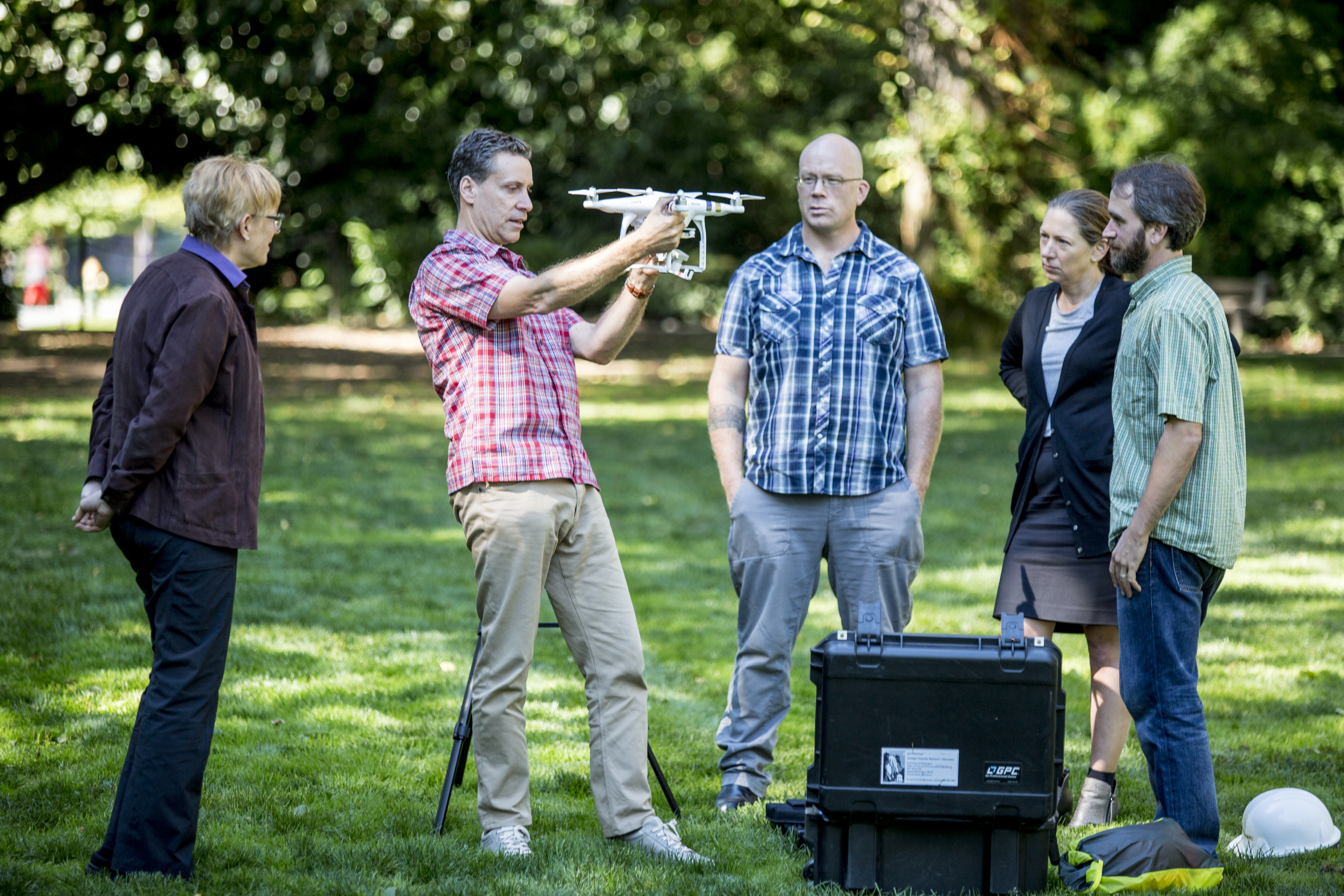April 19, 2024
 The UW RAPID faculty team tests an Unmanned Ariel System, or drone, that will be used for aerial reconnaissance. (left to right): Ann Bostrom, Joe Wartman, Scott Miles, Laura Lowes and Jeffrey Berman. Dennis Wise, University of Washington |
Dr. Scott Miles, senior research scientist in the Department of Human Centered Design & Engineering’s Center for Collaborative Systems for Security, Safety, and Regional Resilience (CoSSaR), is Co-Principal Investigator on a new National Science Foundation award to host the United States’ first post-disaster, rapid response research facility (RAPID) at University of Washington.
The award will fund user research, software development, equipment procurement, training, field assistance, and service evaluation to facilitate multi-disciplinary reconnaissance research teams seeking to understand the impacts of wind and earthquake events on natural, engineered, and social systems.
The new facility will provide the hazards and disaster research community with the tools and technical support to reliably collect and analyze perishable quantitative and qualitative data. In addition, the facility will enable citizen science using social media and mobile devices to crowd-source post-disaster data and educate the public about wind and earthquake disasters.
Dr. Miles will lead the user research, development, and usability testing of software and mobile platforms for collecting social science and citizen science data, as well as contribute to the development of the RAPID facility’s science plan on the topics of lifeline infrastructure, social science, and citizen science.
University of Washington collaborators on the award include Dr. Joseph Wartman (Principal Investigator), Civil & Environmental Engineering; Dr. Jeffrey Berman (Co-PI), Civil & Environmental Engineering; Dr. Ann Bostrom (senior personnel), Evans School of Public Policy and Governance; Dr. Laura Lowes, Civil & Environmental Engineering; and Troy Tanner (senior personnel), Applied Physics Laboratory.
Dr. Miles observes, “A research facility of this kind is historically unprecedented. We are grateful to the NSF for recognizing the University of Washington’s strong capacity to support the country’s hazards and disaster researchers. Part of this capacity is CoSSaR’s ability to integrate a human-centered approach to building community resilience in order to meet the needs of reconnaissance researchers."
NSF award #1611820 is part of the Natural Hazards Engineering Research Infrastructure, a $40-million NSF initiative, which also includes a Network Coordination Office, Computational Modeling and Simulation Center, and Cyberinfrastructure Center.
Read the full press release from UW News »
Related Coverage
- UW will host global center for disaster reconnaissance, research | Seattle Times